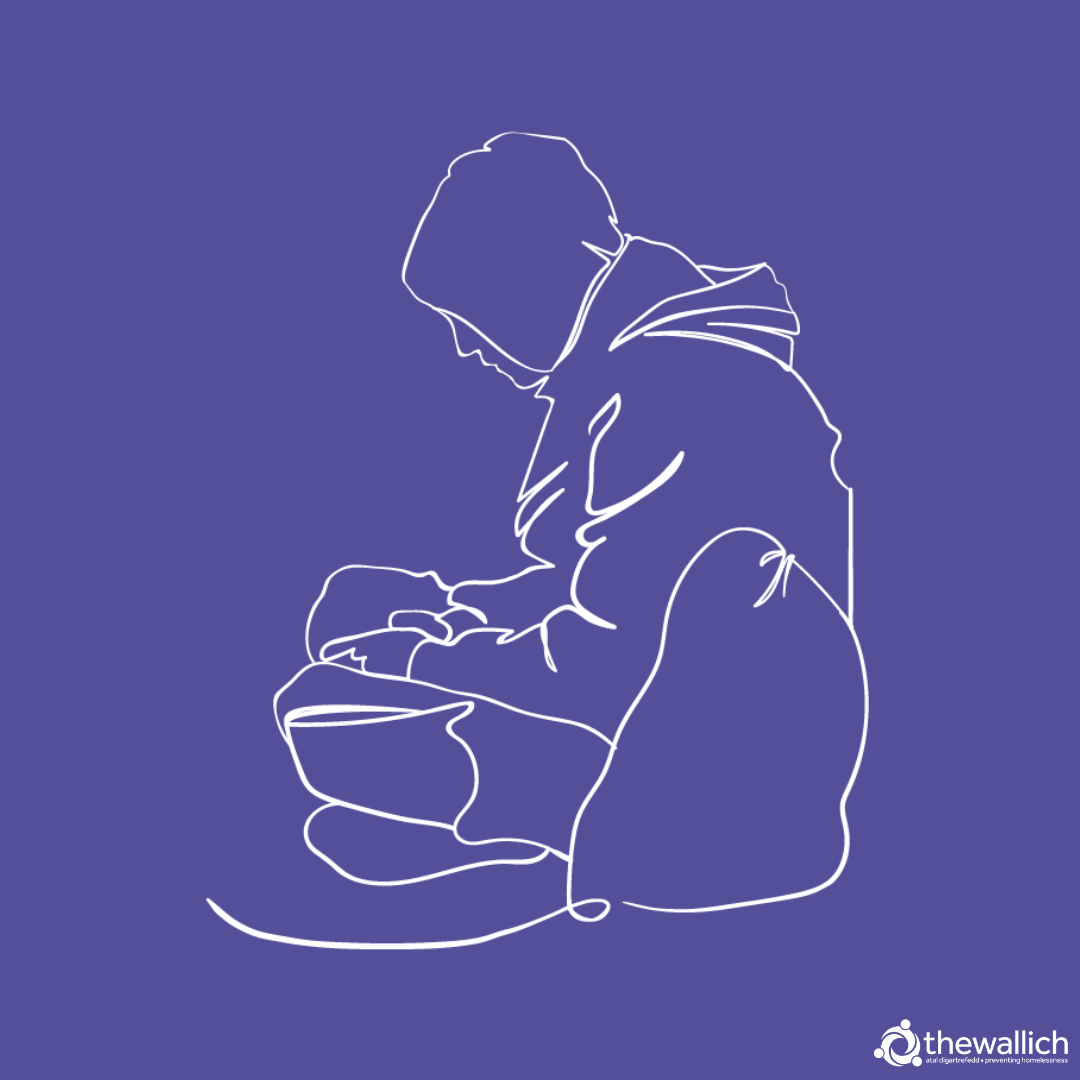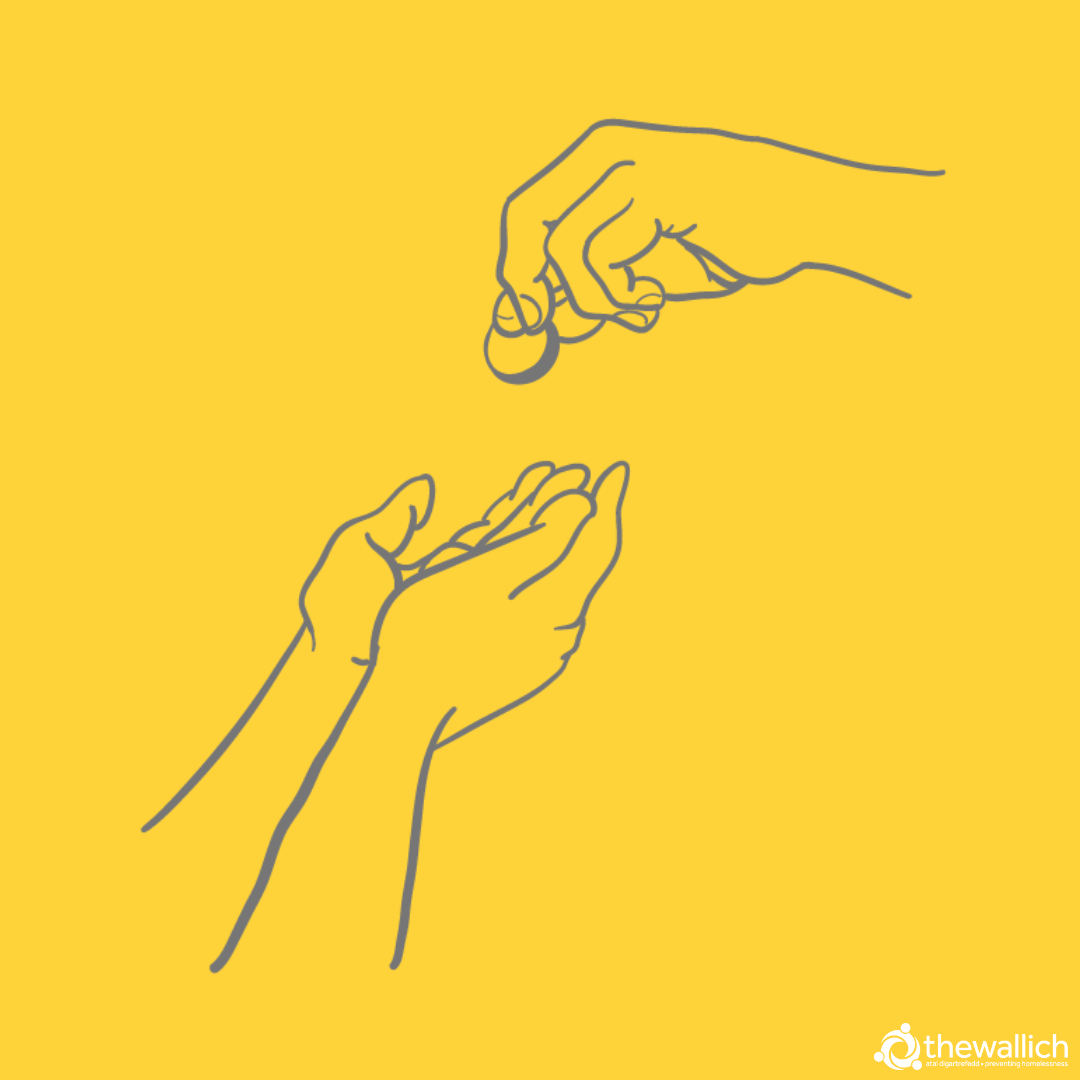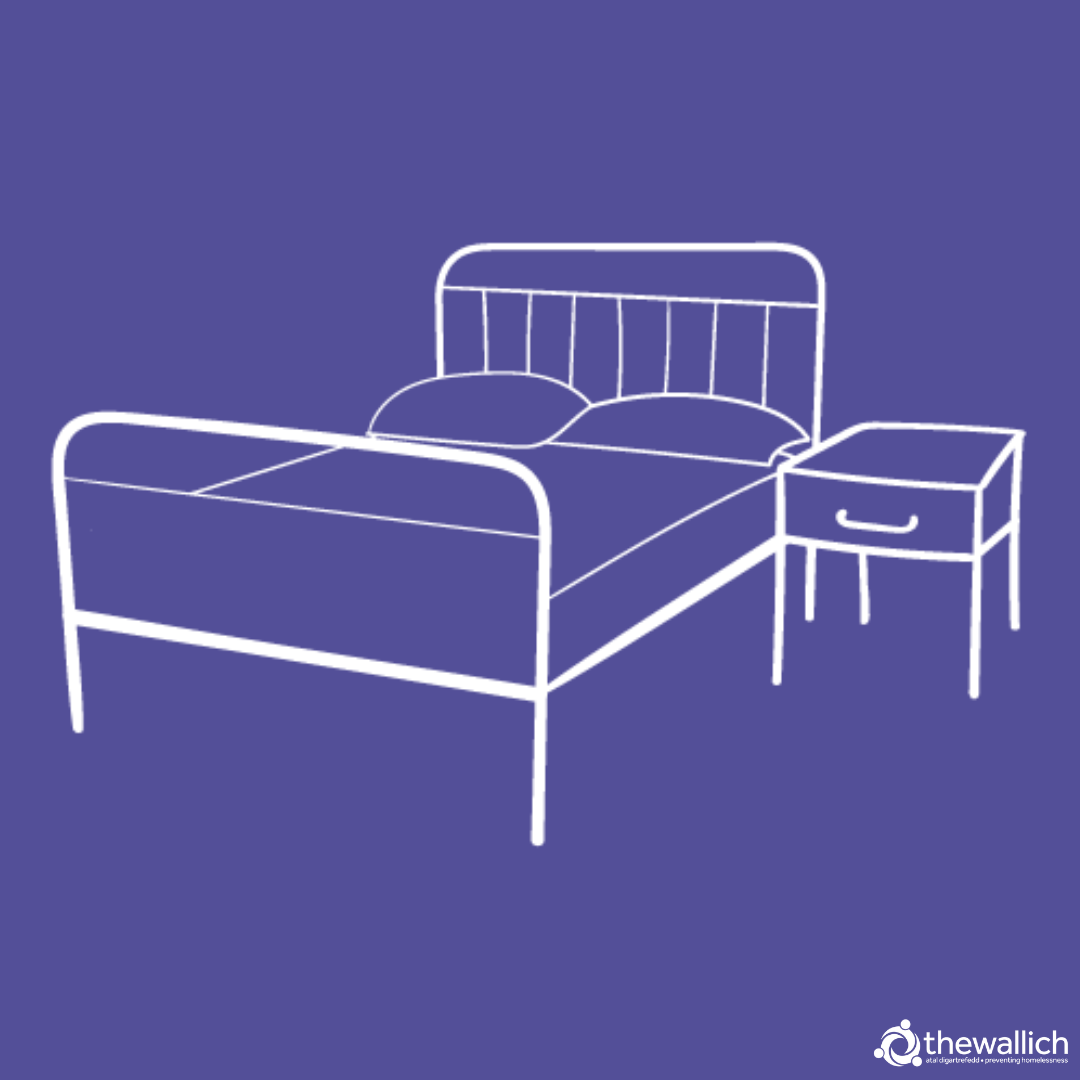The Wallich is here to provide information which clears misconceptions about homelessness
The legal definition of homelessness is ‘a household has no home in the UK or anywhere else in the world available and reasonable to occupy’.
Rough sleeping
Rough sleeping is the most visible type of homelessness and commonly what people associate with homelessness.
Rough sleeping is simply someone that doesn’t have a roof over their head and sleeps on the streets, in parks or other outdoor locations.
Hidden homelessness
At risk of homelessness
In temporary or emergency accommodation
Homelessness affects a wide variety of people. Some groups people may be more vulnerable to homelessness.
You may be more at risk if you are:
At The Wallich, we are supporting more than 7,500 people experiencing homelessness per year.
We run more than 100 services across 18 of the 22 local authorities in Wales, ranging from long-term accommodation, employment and wellbeing services, emergency accommodation, supporting people with a background of offending and more.

Homelessness can be a complex and controversial topic.
At The Wallich, we see myths about homelessness on a day-to-day basis, some of which can be extremely damaging.
Many of the myths that we directly hear, see in traditional media or on social media often portrays homelessness and the people experiencing homelessness in an extremely negative light.
These myths encourage archaic stereotypes to live on, and create an ‘us and them’ divide, which can lead to prejudice and hate.
We live and breathe our organisational values and truly believe that when debunking stereotypical myths, we need to be courageous, determined and authentic.
To debunk these myths and shed light onto the harsh realities of homelessness, we consulted our staff members and our Service User Shadow Board.
All the myths below have been said to a service user or staff member, have been written on social media or in the comment section of articles.

“People are homeless because they’ve made poor life choices.”
This is false. Homelessness is an extremely complex subject.
There is no ‘one size fits all’ when it comes to homelessness, and despite some reoccurring themes, usually no two experiences are the same.
Some people become homeless after a long chain of life events.
Someone may become homeless due to…
Individual circumstances
Systemic issues
A complex interplay of situations
There are lots of layers to becoming homeless, usually there is a knock-on effect behind each reason.
For example – an individual may have adverse childhood experiences which could result in poor mental health, which could lead to a relationship breakdown, which may result in homelessness.

“You shouldn’t give money to people sleeping rough because they’ll spend it on drugs, or it’ll be a scam.”
Giving money to someone sleeping rough is a personal choice.
Someone asking for money doesn’t mean they’re going to spend it with ill intentions, maybe they’re looking to get enough change to get transport to an appointment or buy themselves a hot meal.
It could simply be a conversation starter. A way to attract attention after being ignored and having their eye contact avoided for hours on end.
When someone is bedded down – a term used when someone is sat on the floor in the place they’re planning to sleep – they have a ‘worm’s-eye view’. This can make anyone walking past or looking down at you seem extremely intimidating and make the individual feel very vulnerable.
Simply acknowledging the individual, even if that means replying ‘no, sorry’ to their ‘any spare change’ question, making eye contact and saying something friendly can make a world of difference – and costs nothing at all.
As a homelessness charity, we do not recognize the term professional begging and have seen no credible evidence to support these claims.

“Why don’t homeless people just go to a shelter – there are loads of them”
The transition between sleeping rough and moving into a shelters or supported accommodation can be scary, confusing and overwhelming.
Everyone experiencing homelessness has a different level of support needs and accommodation needs.
From an outsider’s perspective, it is easy to see why people jump to conclusions in having this mentality, but the reality is much more complex.
The first thing that someone needs to do if they’re at risk of becoming homeless or have been made homeless, is present themselves to the council. This can feel daunting and humiliating.
Factors including the pandemic and the cost-of-living crisis means that councils are overstretched. People are often signposted to charities, agencies or put on a waiting list as a stopgap.
When accommodation is offered, there are usually reasons as to why the offer isn’t accepted included distrust of services or an unsuitable offer.
Time frames
The accommodation might not have a time frame for when a space is available or will have a maximum of how long someone can reside there.
This can be daunting. Time frames can add pressure to recovery and people may lose hope because of this.
Health
Both physical and mental health are big factors in why someone may not accept or stay long in accommodation.
According to Crisis, 45% of people experiencing homelessness have been diagnosed with a mental health issue. This rises to 8 out of 10 people who are sleeping rough.
Barriers to accessing accommodation if someone has a physical health condition could be shelters may not be accessible – ramps, accessible bathrooms, furniture, or cooking facilities – lack of specialist support or poor quality housing stock.
Mental health, including PTSD, previous experiences and challenging relationships can be a factor as to why someone would prefer not to go into accommodation.
Further barriers could be anti-social behaviour, uncertain tenancies, overcrowded conditions or feeling unsafe.
Any of these issues may exacerbate pre-existing conditions.
Trust
A common concern from people we support are that they’ve been let down having to repeat their stories time and time again to different networks.
After sleeping rough for prolonged periods, it can be challenging to adjust to being inside. A small challenge can easily trigger a fight or flight response.
Building trust takes time and requires honest and open two-way conversation.
Some individuals just are not ready to receive help yet. But we believe that with sustained outreach and intervention from services, that it may happen – but at their own pace.
Available provisions
There are various types of accommodation for people experiencing homelessness:
Historically provisions have had conditional entry requirements – priority need or local connection.
Priority need definition – A person has a priority need if the authority is satisfied that they are vulnerable as a result of old age, mental illness or disability, physical disability or other special reason.
Local connection definition – A person has a local connection if they have lived in that area for 3 out of the last 5 years, have employment in that area on a permanent basis, have strong family connection in the area and the family member of members have lived there for a minimum of 5 years.
In response to the Covid-19 pandemic, Welsh Government introduced a new policy to reduce the potential impact that Covid-19 could have to people experiencing homelessness and especially those sleeping rough.
This meant that priority need, and local connection requirements were paused and a ‘no-one left out’ policy was introduced.
As of July 2022, Welsh Government consultations are ongoing regarding the changes to homelessness provisions, to ensure that no one is left to sleep rough in Wales.
Rules and regulations
Temporary accommodation can have lots of rules and regulations to ensure health and safety compliance, safeguarding for staff and clients and more.
The transition between being homeless and having no rules to moving into accommodation with restricted behaviours, can be challenging to adjust to and follow.
Regulations that could potentially stop someone accepting an accommodation place could be:
Other factors that aren’t rules which may result in someone not accepting a place in accommodation could be:
For some people experiencing homelessness, the chaotic atmosphere of some hostels can be challenging, and they may feel that sleeping on the street is genuinely a safer place.
Many charities and campaigning organisations, including The Wallich, are fighting for barriers to be removed and for all homelessness accommodation provisions to be fully trauma informed, safe and a pleasant place to stay.